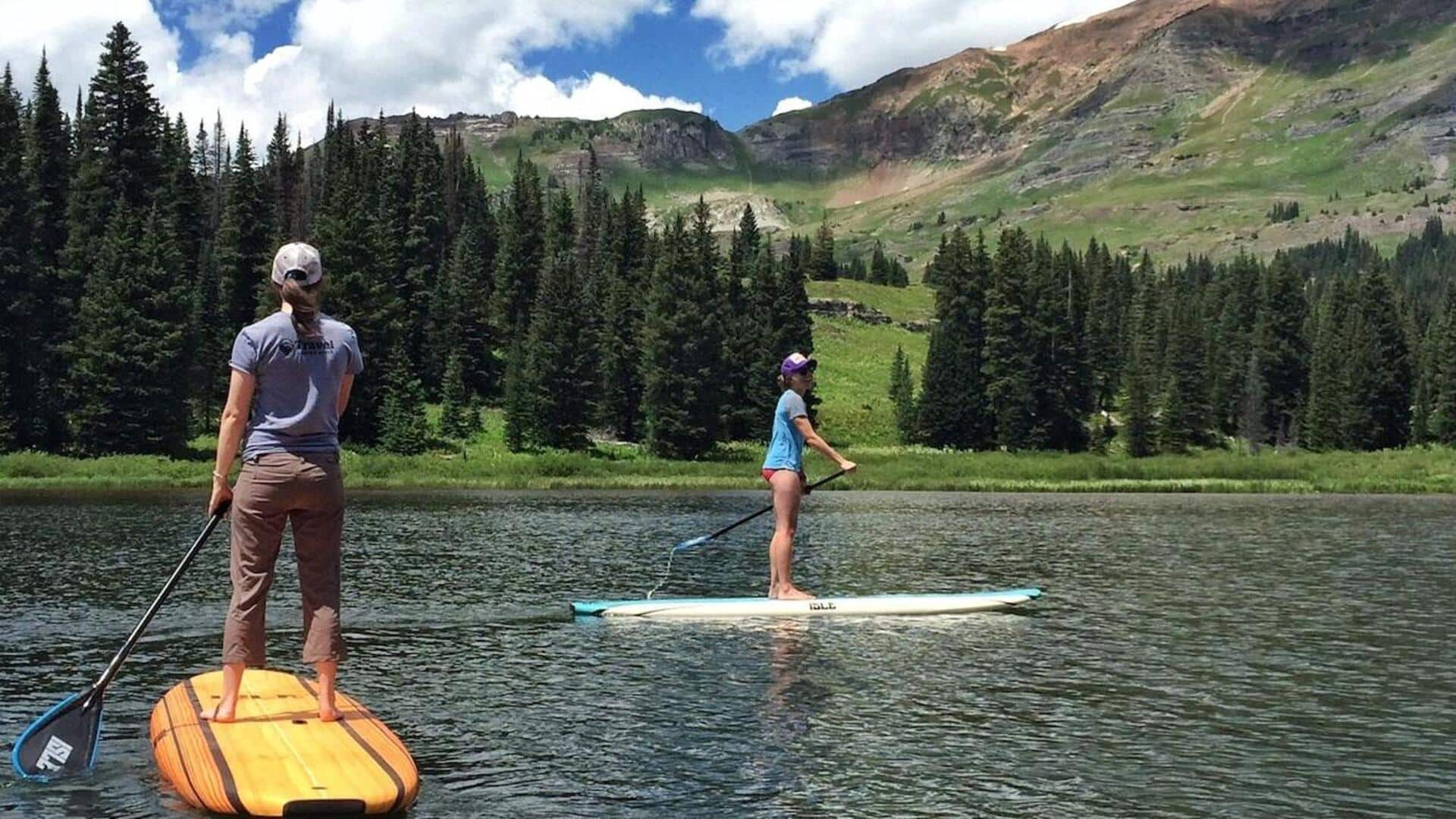
Organizing a joyful paddleboarding clean-up event
What's the story
Paddleboarding has emerged as a favorite water sport for many, offering a fantastic workout and a serene way to connect with nature. Marrying this activity with an environmental clean-up effort can create an even more rewarding experience - fun meets meaningful impact. This guide offers practical tips on how to organize a successful paddleboarding clean-up event, ensuring participants have a blast while making a positive difference for Mother Nature.
Location
Selecting the perfect location
Choosing the perfect location is crucial for your paddleboarding clean-up event's success. Pick bodies of water that are easy to access and safe for all skill levels. Think lakes, slow-moving rivers, and calm coastal areas. They should have plenty of launch points for participants and enough litter to make the clean-up effort worthwhile.
Supplies
Gathering essential supplies
To make your clean-up a success, make sure everyone has the equipment they need. This includes paddleboards, safety vests, trash grabbers, gloves, reusable trash bags or buckets, and first aid kits. You might want to collaborate with local paddleboard rental shops to get discounts or donations on the equipment. Don't forget to provide water in reusable bottles! This way, everyone stays hydrated without creating more plastic waste.
Promotion
Promoting your event
A strong promotional effort is crucial for recruiting volunteers. Leverage social media, community bulletin boards, local newspapers, and environmental organizations to raise awareness about your event. Craft compelling posts emphasizing the positive impact of the clean-up and what volunteers can expect. Motivate people to register beforehand, allowing you to gauge attendance and plan resources accordingly.
Safety
Ensuring safety measures
Ensuring participant safety is paramount during your paddleboarding clean-up event. Conduct a thorough briefing on basic paddleboarding techniques and safety protocols before commencing. Have at least one experienced paddler or lifeguard on standby throughout the event. Define clear boundaries for participants to operate within, and equip them with whistles or flags for signaling if they require assistance.
Engagement
Fostering community engagement
To increase impact and fun, set up races or challenges for collecting the most trash. Motivate people with prizes for the most litter collected or for strange or funny items found. After the cleanup, share stories over food and drinks provided by local businesses, helping to build a sense of community among your volunteers.